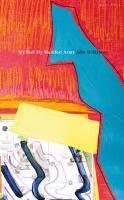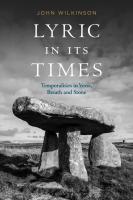I am a poet and student of poetics who joined the English department in 2010. I serve as Director of the Program in Creative Writing and Chair of the Divisional Committee on Poetics.
My first collection of poetry, Useful Reforms, was published in 1976. My recent publications include Reckitt’s Blue (Seagull Books 2013), Ghost Nets (Omnidawn 2016) and My Reef My Manifest Array (Carcanet 2019). A selected poems, Schedule of Unrest, was published by Salt in 2014. My work is referenced in the standard guides and histories of recent British poetry and of Modernist poetry.
My critical publications include a collection of essays, The Lyric Touch (Salt 2007), which includes essays on poetics; on ‘Cambridge School’ poetry including J.H. Prynne, Denise Riley, and John James; and on American poetry, notably John Wieners. My second critical book, Lyric in Its Times: Temporalities in Verse, Breath and Stone (Bloomsbury 2019) ranges from the Renaissance to the New York School, notably Frank O’Hara and Barbara Guest, mid-century British poets such as Dylan Thomas and W. S. Graham, and contemporary poets including Layli Long Soldier and Cody-Rose Clevidence. It also discusses visual artists as various as Veronese, Peter Lanyon, Aaron Siskind and Ian Hamilton Finlay.
My critical, scholarly and research work falls into three distinct but related areas. I am interested in supporting research work in these areas, in New York School poetry, and in recent poetic practice and theory.
- British poetry and painting in the mid-century. I continue to work on W. S. Graham’s relations with the St Ives painters Peter Lanyon, Roger Hilton and Bryan Wynter, and the debates on abstraction and landscape which inform both the poetic and visual work. I am also interested in the bearing of these debates on concurrent debates in the US, particularly in relation to the painting of Willem de Kooning, Joan Mitchell and Helen Frankenthaler, and the poetry of Frank O’Hara and Barbara Guest.
- US-UK poetics relations in the 1960s and 1970s. I have a paper in press on Charles Olson and J.H. Prynne, drawing on their extensive correspondence, which will challenge the one-way model of influence from US to UK in this period. There is considerable scope for further study, notably in relations between Ted Berrigan and John James, and the intensive connections between British Marxist Feminist poets such as Denise Riley and Wendy Mulford and American poets including Alice Notley.
- Outsider Writing. I am a Principal Investigator, along with Matt ffytche of the University of Essex, for a project on Outsider Writing launched in 2016, with its initial three years supported by the University of Chicago Neubauer Family Collegium for Culture and Society. The project focuses on post-1945 writing by people with major mental illness (but within a longer historical perspective), taking account of the antecedents of mental illness in experiences of racism, immigration and other forces of social oppression and dislocation. The first three years have helped shape Outsider Theory as it is now developing, made connections with Outsider (visual) Art and with the politics of outsider status in the art and literary markets, and defined the scope of the project more broadly. It has involved practitioners as well as scholars, through a grant from the Gray Center for Arts and Inquiry.
Among other activities, I chaired the planning group for the centennial conference on the great black Chicago poet Gwendolyn Brooks in April 2017.
My background is unusual in that until 2005 my career was in mental health services in the UK, as a nurse, a social worker, a housing development worker, a strategic planner and a public health professional. Although in management theory much lip service is paid to career flexibility, it is my experience that students considering an academic career don’t believe such talk, and with some reason. I’m happy to talk about the possibility and problems of sustaining an intellectual and creative life outside the academy and a creative life within it.



